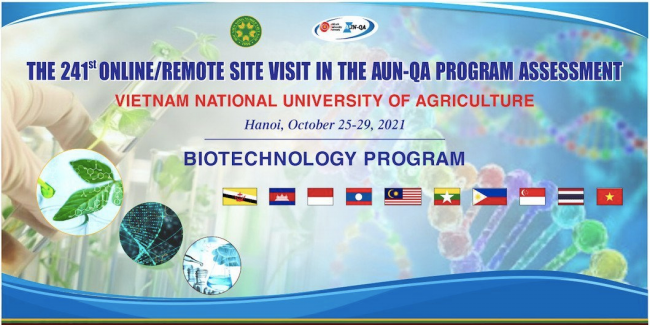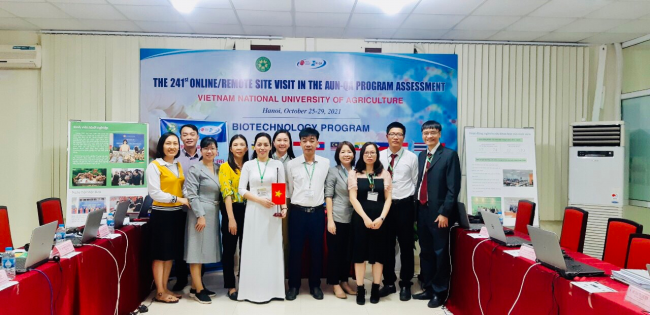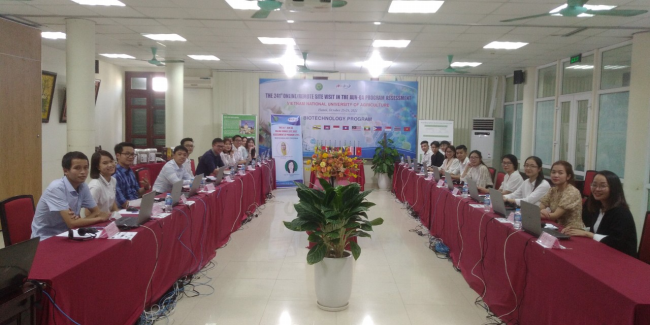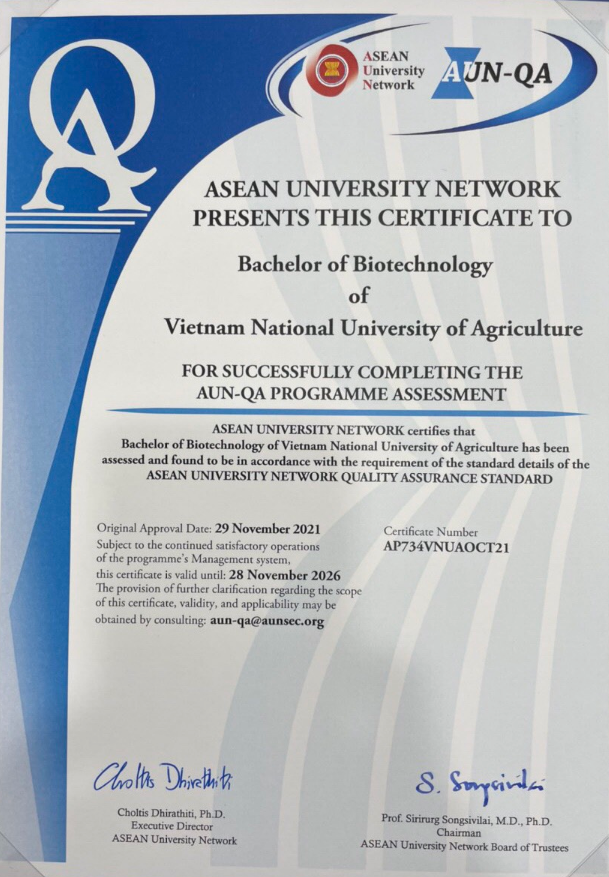AUN-QA standard accreditation
AUN (ASEAN University Network) is the quality assurance organization of the Network of Leading Universities in Southeast Asia, established in 1995 with the original members nominated by the Education Ministers of the countries. Currently, the AUN consists of 118 experts from 10 countries, among which 36 experts are from Vietnam.
AUN-QA (ASEAN University Network - Quality Assurance) is a set of standards with strict quality rules. AUN-QA has issued 02 sets of standards for the assessment of educational institutions and training programs. The standard set of AUN-QA 3.0 includes 11 standards, which are implemented on a 5-year cycle. Being recognized as meeting AUN-QA quality standards will bring great opportunities for educational institutions such as: (1) affirmation of the quality of education and training for society and stakeholders; (2) creating advantages for student and lecturer in exchange activities between universities in the region and (3) gradually affirming the quality and reputation of educational institutions in the region.
The importance of the AUN-QA standards for education quality
The leading problem that needs to be solved by the education sector at universities is training quality standards. Therefore, the AUN-QA standards, discussed and developed by AUN experts, are a tool to maintain, innovate and improve the quality of teaching and research in AUN member universities.
With a strict and transparent assessment process; a set of comprehensive assessment standards for training quality which is recognized by the education systems of countries inside and outside Southeast Asia, AUN accreditation helps Vietnamese universities to gradually determine their positions in the region. Participating in AUN accreditation will bring benefits and values, specifically:
Students are the first beneficiaries of the program accreditation
Students will enjoy a quality training program that is continuously improved, in all aspects such as framework, subjects, faculty and teaching activities, student support activities. At the same time, students studying the programs that are assessed and recognized by AUN-QA will have the advantage of participating in various student exchange or credit transfer programs with different universities in the region. In addition, graduates from these programs will have many opportunities in finding employment in the regional and international markets.
AUN-QA accreditation brings values to the related stakeholders
Lecturers are able to teach and research in an international environment, especially having more opportunities to exchange and learn with international partners as well as improve themselves to improve their professional qualifications and foreign language proficiency (English) to meet the program's requirements.
University: Affirming the university's commitment to society and employers about the quality of the outputs of the training program, which is human resources trained according to strictly controlled quality standards.
Employers: AUN-QA assessment results help employers have a reliable basis to find quality human resources, from a training program with international quality references.
Society: The AUN-QA assessment results help to provide guidance in choosing universities for parents and students.
Accreditation Process of the Bachelor of Biotechnology Program
In 2018, in order to meet the training quality according to the Vision and Mission of the Vietnam National Academy of Agriculture (VNUA), the Biotechnology program was one of the four programs selected to be assessed by the AUN-QA 3.0 standard. In order to prepare for the self-assessment process according to AUN-QA standards, the Faculty of Biotechnology has established an AUN team to carry out related works. The self-assessment team operated under the direction of the university's Board of Directors and received direct instructions from the Faculty’s Board. At the same time, during the process of preparation and self-assessment, the Faculty of Biotechnology received the attention, advice, training and enthusiastic support from the staff of the Center for Quality Assurance.

Despite the complicated development of the Covid-19 epidemic, with the approval and facilitation of AUN and the AUN-QA assessment team, on October 25-29, 2021, VNUA in collaboration with the Southeast Asian University Network (ASEAN University Network - AUN) carried out the 241st AUN-QA online/remote visit in the AUN - QA program assessments of VNUA’s 4 training programs including Animal Science, Biotechnology, Food Science and Technology, and Environmental Science.
The assessment process was strictly carried out according to the requirements and procedure, in accordance with the guidelines of the AUN-QA Network. For internal assessment purposes, assessors conducted on-site assessments and focused on a range of criteria, such as students, training goals and outcomes, curriculum, continual improvement of training programs, faculty, infrastructure, facilities and equipment in preparation for a formal assessment by AUN-QA experts.

Assoc. Prof. Dr. Nguyen Xuan Canh – Dean of the Faculty of Biotechnology and Dr. Nguyen Thi Thuy Hanh - AUN developmetn team leader and members of the Faculty of Biotechnology participated in AUN accreditation

Working session of the assessement team with the alumni of the Faculty of Biotechnology
Biotechnology training program meets AUN-QA accreditation standards
On November 29, 2021, the Organization of the Quality Assurance Network of Southeast Asian Universities officially certified: The Bachelor of Biotechnology training program meets AUN-QA accreditation standards.

Certificate of AUN-QA accreditation for the Bachelor of Biotechnology training program
The AUN-QA International Accreditation Certificate has confirmed that the Bachelor of Biotechnology training program of the Faculty of Biotechnology, Vietnam National University of Agriculture has been meeting quality standards according to the organization's common set of standards. This is an honor and pride, opening up opportunities for the integration, affirming the position of the training institution, and bringing great benefits to learners and stakeholders. At the same time, it is the responsibility of the lecturers to maintain and constantly innovate and improve the quality of training to meet the increasing demands of the society in the current context of integration.